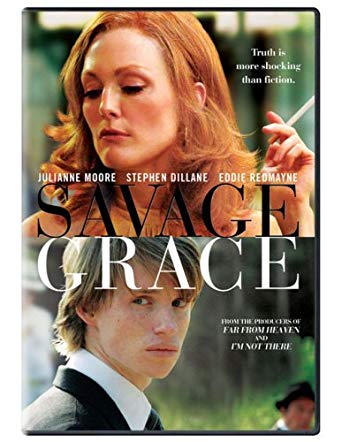Howard A. Rodman: Finding the Focus to Be a Screenwriter, Novelist, and Educator

At Freedom, we love our users – not just because they use our product, but because they’re cool – cool people working on cool stuff. Academy Award-nominated screenwriters, bestselling authors, editors, journalists, developers, illustrators, designers, academic researchers, explorers, and entrepreneurs – the Freedom community is packed with curious, creative, and passionate go-getters. We love to share their stories and advice, because how better to learn about productivity than from the productive?
Meet Howard A. Rodman
Howard A. Rodman is a screenwriter, novelist, and educator. Among his many titles and roles, Rodman is the past president of the Writers Guild of America West; a professor of screenwriting at USC’s School of Cinematic Arts; an artistic director of the Sundance Screenwriting Labs; and a member of the National Film Preservation Board.
His impressive resume includes writing critically acclaimed Savage Grace with Julianne Moore and Eddie Redmayne, and August featuring Josh Hartnett and David Bowie. He also wrote Joe Gould’s Secret, the opening film of the Sundance Film Festival in 2000. In addition to his screenwriting credits, his 1990 novel, Destiny Express, a historical romance set in the pre-war German film community, was blurbed by Thomas Pynchon, who called it “daringly imagined, darkly romantic–a moral thriller.” On the small screen, Rodman has also written several of the episodes of the Showtime anthologies Fallen Angels and The Hunger, adapting Jim Thompson, David Goodis, et al. for directors Tony Scott, Steven Soderbergh, and Tom Cruise.
In 2013, in recognition of his many contributions, he was named a Chevalier de l’Ordre des Arts et des Lettres (Knight of the Order of Arts and Letters) by the government of France and was also FinalDraft’s inductee into the Screenwriter’s Hall of Fame in 2018.
With such extraordinary credentials and vast experience, we decided to sit down with Howard this week and learn a little more about how he finds the time and focus to do it all.
How did you know that you wanted to be a screenwriter, author, and educator and what were your first steps in making this your career?
When I was young I was one of those kids who shut out the world by hiding in books. All kinds of great pulp, from Jules Verne to Cordwainer Smith. From reading to writing was as small step — as wonderful as my hero-writers were, I realized that I could hide in purpose-built worlds of my own making. So in that sense: I always know that I wanted to write. Or to put it another way: I never didn’t write. I’ve spent time in journalism (was the editor-in-chief of The Cornell Daily Sun, and the west coast monthly columnist for the Village Voice), screenwriting (Joe Gould’s Secret, August, Savage Grace), fiction (the novels Destiny Express and The Great Eastern, as well as a basket of short stories). And somewhere in a storage bin is a thin, mortifying sheaf of adolescent confessional poetry.

At what point did you realize that tech was taking a toll on your productivity, time, relationships? When did you know that you had to do something about it?
Almost immediately. When first started, the machine I used for writing (typewriter), the machine I used for research (book), the machine I used for entertainment (television) were three separate machines, often in three separate rooms. But when I started working on a computer (Apple IIS), all of those machines were the same machine. So I needed to segregate its all-too-easily conflatable functions.
I was a member of a wonderful early internet community, the WELL, and would use an analog modem to telnet in to chat with my (virtual) friends. It provided at one and the same time a deep sense of comradeship and a capital way of not writing. So when I really needed to work I’d disconnect the modem. In the ‘modern’ era I’ve used Freedom to turn my 3-in-1 machine back into a typewriter/text editor.
As someone who wears many hats, how do you prioritize what gets your time and attention each day?
It’s always a balancing act, and sometimes I fall. I like deadlines. And external pressure. It’s always easier to come through for someone than to self-motivate. The novel got done because I knew that I had only so much clear time before my brainpan was annexed with so much else. So I dove into it, and then it dove into me.
How do you stay focused and motivated on a daily basis? Do you have a routine, ritual, or process that helps to get you into a productive flow?
I like to write early early, at the computer by 5am, when the world is silent. I wake up, meditate, make a most excellent short espresso, and try to write — I’ve heard them called “morning pages” — before I’m awake enough to self-censor. On longer projects, like The Great Eastern, I like to cue a specific piece of music that just takes me back to the world of the story.
How do you optimize your environment for productivity and focus? How do you incorporate Freedom into your schedule?
I’m not sure my environment is optimized — it just works for me, more or less. I use Freedom for progressively longer writing sprints: first half an hour, then an hour, then two hours.
What is the most difficult or challenging aspect about your work or working process? Do you have any strategies that you use to help overcome these challenges?
The most difficult part, for me, is disabling the inner critical voice while writing, and then summoning it, in all its terrible clarity, when I’m marking up pages or rewriting. Sometimes the pivot seems abrupt, and one can smell the rubber on the asphalt.
What resources or tools do you use daily and have found most beneficial to your working process?
I use Word, which I think of as The Devil You Know, and FinalDraft, which, after a long courtship, I’ve now married. I’m also a big fan, for period-based projects, of consulting real books. You can hold them. They feel great. They smell great.

What projects are you currently most excited about?
As a screenwriter: an adaptation of the wonderful, black Jean-Patrick Manchette novel Le petit bleu de la côte ouest, a/k/a 3 to Kill, a/k/a West Coast Blues, for Amazon and director Chris McQuarrie. Revisions on my own original script Followers, about the shitposters, meme artists, incels, neckbeards, and couch potatoes who got Trump elected. And of course the novel, charitably a dozen years in the making, The Great Eastern, out from Melville House Books on June 4. (Up next: adapting The Great Eastern for the U.K. film company GreatPoint Media.)
What do you do outside of your work routine that helps you stay healthy and productive?
I meditate each morning, using the same mantra I was given in college. I do Pilates twice a week. And I walk around the Lake Hollywood reservoir nowhere near as often as I should. Somewhere in my late 30s I went from owl to lark: I can now only do my best writing in the mornings.
Where are you currently based?
Los Angeles. And in the hearts of my countrymen.
To learn more about Howard and his works, you can visit his site at HowardRodman.com


